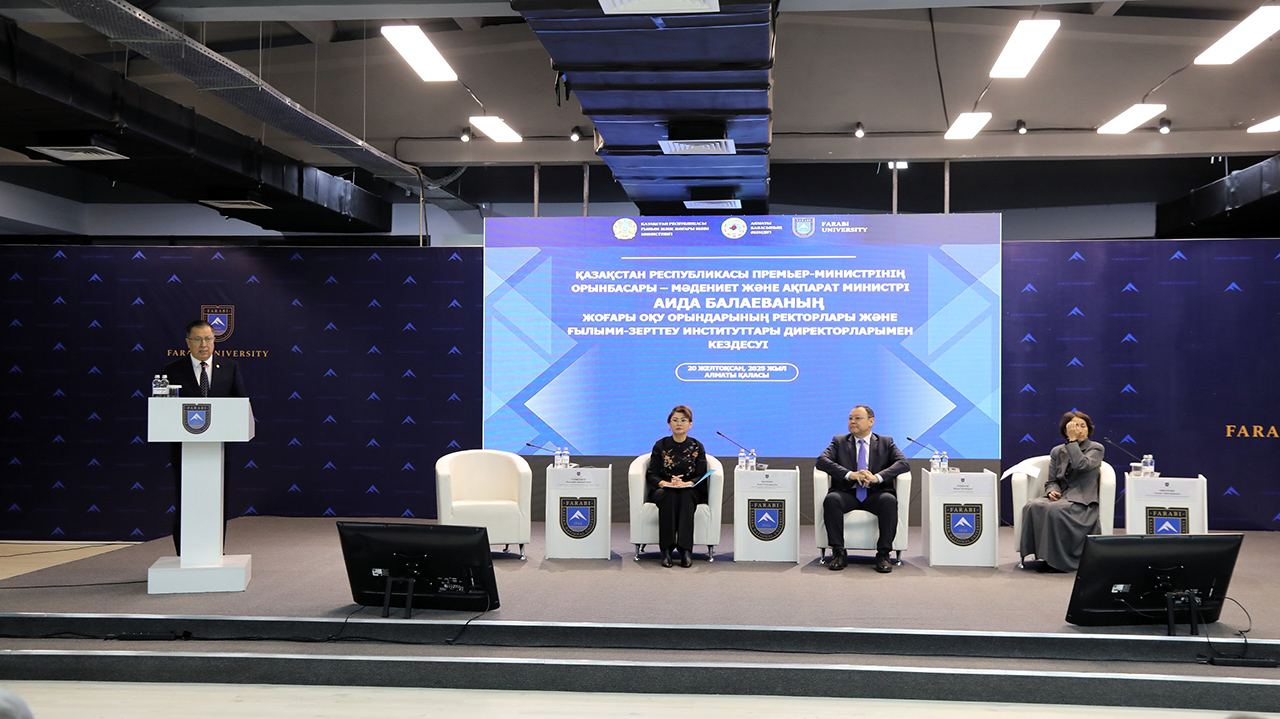- Main
- News
- PROFESSOR ALI ALI AHMED SHAABAN: NOTES ABOUT THE KIPCHAK STEPPE GAVE ME INSPIRATION TO VISIT THE KAZNU
PROFESSOR ALI ALI AHMED SHAABAN: NOTES ABOUT THE KIPCHAK STEPPE GAVE ME INSPIRATION TO VISIT THE KAZNU
Egyptian academician, Professor of the Middle East and South Asia Department of the Faculty of Oriental Studies of the Al-Farabi Kazakh National University Ali Ali Ahmad Shaaban shared his experience in a conversation with us.
Professor Ali Ali Ahmad Shaaban is a native of Cairo. He has achieved success in the scientific field. In 1975 he graduated from the Department of African Languages at Al-Azhar University in Cairo, then he gained a Master of Practical Sciences in Languages at the University of London. In 1983 he received a doctorate in General Linguistics from the University of London.
Professor Shaaban started his career as an assistant in the Department of African Languages. Since 1983 he has been working as a linguistics lecturer at the Faculty of Languages and Translation. Due to many years of considerable experience, he had worked as a professor at this faculty. From 1989 to 1994 he was the head of the Department of Teacher Training at Al Imam Muhammad Ibn Saud Islamic University. Then having shown interest in Kazakhstan, he was promoted to the position of the Dean of the Arabic Language Faculty at Nur-Mubarak University. After several years of working at Nur Mubarak University, Professor Shaaban was assigned as the Dean of the Faculty of Languages and Translation at Al-Azhar University. By the decision of the scientific committee at Al-Azhar University, he was appointed of the Associate Professor of African languages and Literature and the Chairman of the Commission for the Study of Foreign Languages of the Higher Majlis.
‘Al-Farabi Kazakh National University is known as the oldest and one of the most respective universities in Kazakhstan. Since the establishment of the educational institution in 1934, it has made a significant contribution to the development of science and education in the country. The majority of the civil servants are graduates of this institution. It is a great honor for me to serve in this educational institution. Sharing experience in education and arousing students' interest in science are the main tasks of every teacher. I hope my articles and research that are going to be published in the journal "Vestnik KazNU" will be useful to many students. Kaznu is the only university in Kazakhstan that offers a major in-depth study of Old Arabic. The late Professor Absattar Derbisali was a founder of Arabic Department of Oriental Studies at the KazNU. Nowadays his students have followed the paved way and have engaged on the promotion of Arabic Studies,’ says the Egyptian professor.
His scientific publications are reflected in the scientific research of students in many educational institutions. For instance, there are the following research papers: "Scientific Terms and Art in the Swahili ", "Signs of Growth and Decline of Swahili Usage", "Practical Language Classes", "Analysis of mistakes of Egyptian students in learning the Swahili ". Moreover Professor Shaaban has been authored many books such as "Practical Linguistic Reading", "Culture and Context in the Study of Foreign Languages", "Raising Children in Islam”; the listed above textbooks are published in English, Arabic, Kazakh and Russian.
Professor Shaaban is the scientific supervisor of many master's and doctoral dissertations in linguistics and methods of teaching Arabic in Egypt, Saudi Arabia and Kazakhstan.
From the XIII to the XV centuries Mamluk-Kipchaks ruled Egypt from the territory of modern Kazakhstan, and thus relations with the Golden Horde intensified. The historical conditions that took place at that time had an impact not only on the political and social system of the two countries, but also on literature, culture and language. As a result of political, economic, cultural and linguistic ties many written monuments appeared in medieval Egypt containing valuable information about the literature and language of Kipchak steppe and Turkic-Kipchak culture. All these factors prompted me to come to the KazNU, to the land of Kazakh steppe. My students at KazNU conducted research, examined historical monuments from the time of the Mamluk rule, which are still preserved in the cities of Alexandria and Cairo. These cities with the ancient history helped to feel the spirit of that era, to understand its history more deeply. This is a great example of cooperation between two countries and two universities.
